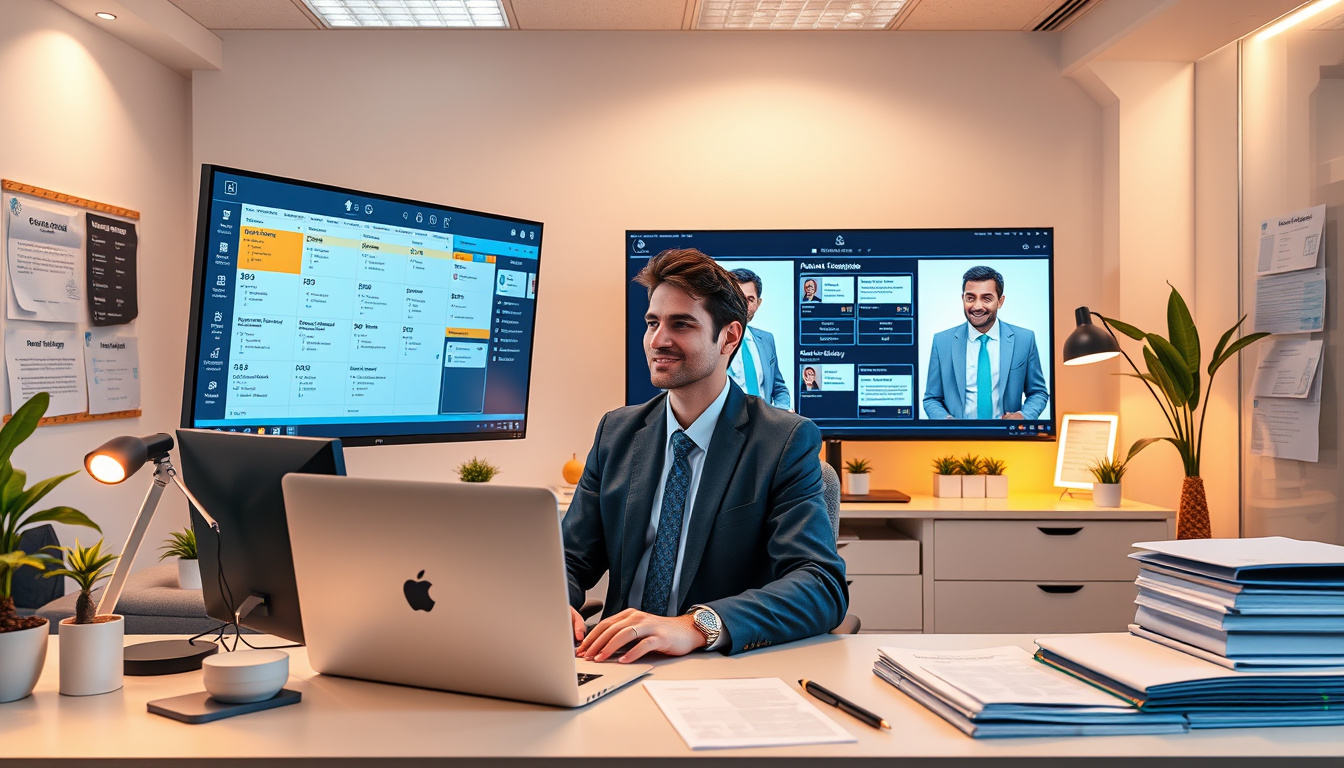In today’s fast-paced legal landscape, solo attorneys often find themselves juggling multiple responsibilities, from client consultations to court appearances, while also managing administrative tasks. The incorporation of a virtual assistant for solo attorneys can be a game changer, allowing you to focus on what you do best: practicing law. In this article, we will explore how a virtual assistant can revolutionize your efficiency, streamline your legal practice, and ultimately lead to greater client satisfaction and increased profitability. Whether you’re new to the concept or considering integrating a virtual assistant into your workflow, we will unlock the full potential of this valuable resource.

Key Takeaways
- Virtual assistants can significantly enhance the efficiency of solo attorneys by managing administrative tasks.
- Hiring a virtual assistant allows attorneys to focus more on legal work and client relationships.
- Key tasks for virtual assistants in legal practices include appointment scheduling, document preparation, and client communication.
- Choosing the right virtual assistant involves evaluating their experience, skills, and understanding of legal processes.
- Success stories illustrate how solo attorneys have transformed their practices through effective delegation to virtual assistants.
Understanding the Role of a Virtual Assistant in Legal Practices
In today’s fast-paced legal environment, a virtual assistant for solo attorneys is becoming an indispensable asset. These professionals provide essential support by managing administrative tasks, enabling solo practitioners to focus on their core legal work. By handling scheduling, client communication, and document management, a virtual assistant streamlines operations and improves efficiency. Furthermore, they can offer specialized services tailored to the unique needs of law practices, such as legal research and case management, often at a fraction of the cost of a full-time employee. This allows solo attorneys to enhance their productivity while maintaining a professional image, ultimately leading to better client service and increased profitability. Understanding how to effectively integrate a virtual assistant into daily operations can be a game changer for solo practitioners striving to balance the demands of running a law office with their commitment to client representation.
Benefits of Hiring a Virtual Assistant for Solo Attorneys
As a solo attorney, managing a legal practice can often be a daunting task that pulls you in multiple directions, leaving little time for client engagement and personal well-being. This is where the role of a virtual assistant for solo attorneys becomes invaluable. By hiring a virtual assistant, you can streamline operations, enhance productivity, and focus more on your legal work. These professionals can handle a variety of administrative tasks such as scheduling appointments, managing correspondence, and conducting research, freeing up your time to concentrate on cases and client relationships. Additionally, a virtual assistant can help maintain your online presence, ensuring that potential clients can easily find you through optimized content and effective social media management. Ultimately, incorporating a virtual assistant into your practice not only reduces stress but also contributes to improved efficiency and client satisfaction, making it a wise investment for any solo attorney looking to elevate their practice.
‘The secret of change is to focus all of your energy not on fighting the old, but on building the new.’ – Socrates

Key Tasks a Virtual Assistant Can Handle for Law Firms
In today’s fast-paced legal environment, hiring a virtual assistant for solo attorneys can significantly enhance productivity and streamline operations. Virtual assistants can handle a variety of key tasks that allow solo practitioners to focus more on their legal work rather than administrative burdens. These tasks include managing client communications, scheduling appointments, conducting legal research, drafting documents, and maintaining case files. By delegating these responsibilities to a highly-skilled virtual assistant, attorneys can ensure that no detail is overlooked while also freeing up valuable time to devote to client advocacy and case strategy. Moreover, a virtual assistant can also assist with billing and invoicing, thus improving the financial management of a solo practice. This combination of support services not only boosts efficiency but also enhances client satisfaction, as attorneys are better equipped to provide timely responses and services.
How to Choose the Right Virtual Assistant for Your Practice
Choosing the right virtual assistant for solo attorneys is crucial in maximizing productivity and achieving business goals. First, identify your specific needs: Do you require help with administrative tasks, client communication, or document management? Next, consider the skill set needed for those tasks; a virtual assistant with experience in legal processes may be advantageous. It’s essential to review their previous work experience, obtain references, and even conduct a trial period to ensure they align with your practice’s workflow. Moreover, assess their communication tools and practices, as effective communication is pivotal for seamless collaboration. Lastly, think about budget and value—opt for a virtual assistant who offers a blend of quality service and affordability to enhance your practice without overspending. By taking a thoughtful approach to hiring, solo attorneys can find the ideal virtual assistant to support their unique needs.

Overcoming Common Misconceptions About Virtual Assistants
In the world of solo attorneys, the role of a virtual assistant is often shrouded in misconceptions that can prevent legal professionals from fully embracing this valuable resource. Many believe that hiring a virtual assistant for solo attorneys means delivering sensitive client information to an unknown entity, leading to fears about confidentiality and data security. However, the reality is that professional virtual assistants are trained and experienced in handling legal matters, often equipped with secure systems that comply with legal privacy standards. Additionally, some attorneys worry that hiring a virtual assistant could diminish their personal touch with clients. On the contrary, a virtual assistant can free up significant time, allowing attorneys to focus on building more meaningful client relationships and enhancing their practice by taking over administrative tasks such as scheduling, billing, and legal research. As attorneys become more aware of the true potential of a virtual assistant for solo attorneys, they can leverage this support to not only reduce stress but also boost productivity, ultimately leading to a thriving practice.
Real-Life Success Stories: Solo Attorneys Who Transformed Their Practices
In today’s fast-paced legal environment, many solo attorneys are embracing innovative solutions to streamline their practices, and one such solution is hiring a virtual assistant for solo attorneys. Take the inspiring case of Jane Smith, a solo practitioner in family law who struggled to manage her growing caseload while maintaining a high level of client service. By partnering with a virtual assistant, Jane was able to delegate administrative tasks, such as scheduling appointments and managing her email correspondences, which freed up valuable time for her to focus on case preparation and client consultations. As a result, Jane not only saw a significant increase in client satisfaction, but she also managed to double her caseload within a year. Similarly, John Doe, a criminal defense attorney, found that hiring a virtual assistant allowed him to spend more time in court rather than behind a desk. He reported that his virtual assistant’s organizational skills improved his case management significantly, leading to better outcomes for his clients and an enhanced reputation in the legal community. These success stories illustrate how a virtual assistant for solo attorneys can be a game-changer, enabling lawyers to work more efficiently and ultimately grow their practice.


